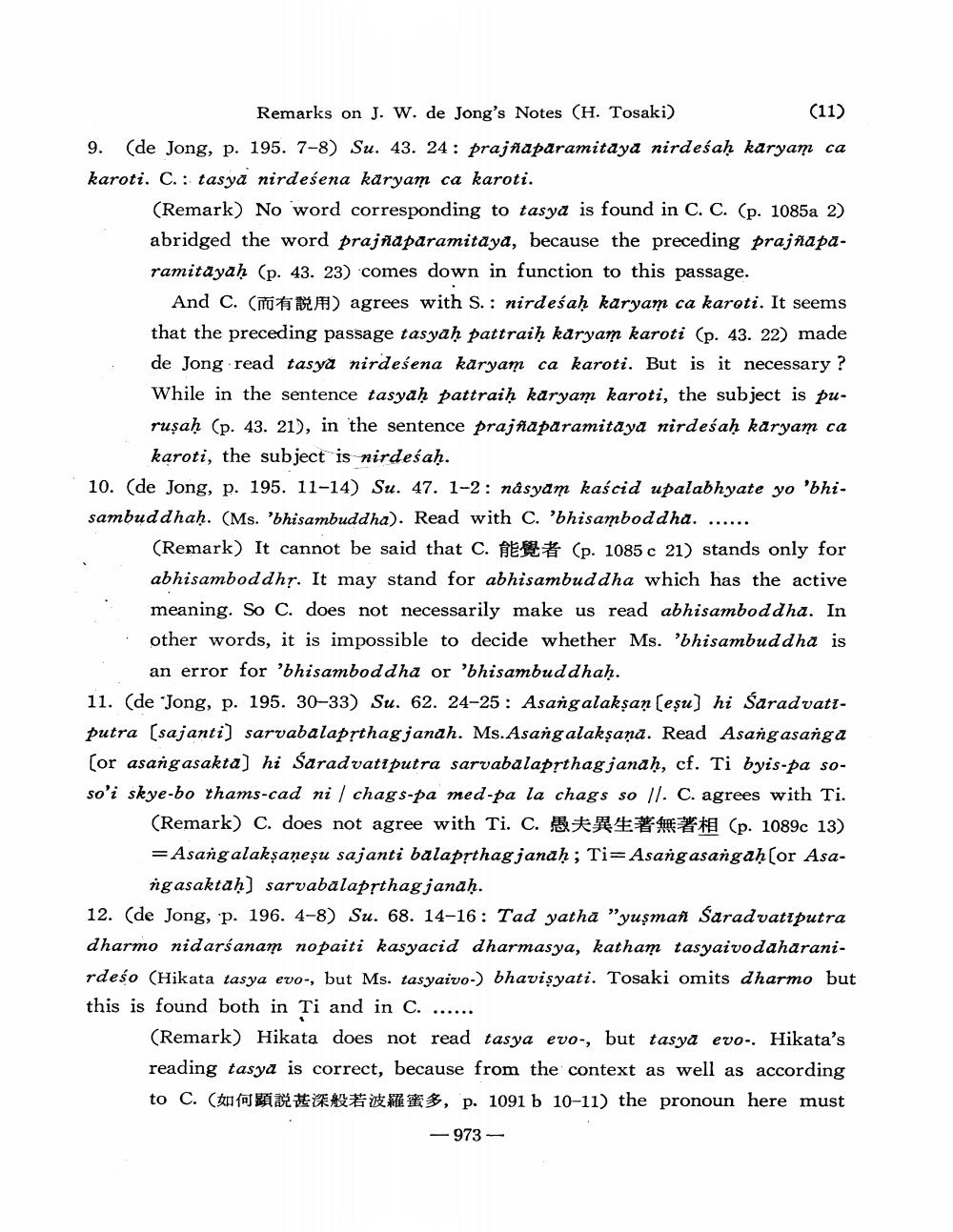________________
Remarks on J. W. de Jong's Notes (H. Tosaki)
(11) (de Jong, p. 195. 7-8) Su. 43. 24: prajnaparamitaya nirdeśaḥ karyam ca karoti. C. tasya nirdesena karyam ca karoti.
(Remark) No word corresponding to tasya is found in C. C. (p. 1085a 2) abridged the word prajnaparamitaya, because the preceding prajnaparamitayaḥ (p. 43. 23) comes down in function to this passage.
And C. (m) agrees with S.: nirdeśaḥ karyam ca karoti. It seems that the preceding passage tasyah pattraiḥ karyam karoti (p. 43. 22) made de Jong read tasya nirdeśena karyam ca karoti. But is it necessary? While in the sentence tasyah pattraiḥ karyam karoti, the subject is pu rusaḥ (p. 43. 21), in the sentence prajnaparamitaya nirdeśaḥ karyam ca karoti, the subject is nirdeśaḥ.
10. (de Jong, p. 195. 11-14) Su. 47. 1-2: nâsyam kaścid upalabhyate yo 'bhisambuddhaḥ. (Ms. 'bhisambuddha). Read with C. 'bhisamboddha.
(Remark) It cannot be said that C. (p. 1085 e 21) stands only for abhisamboddhr. It may stand for abhisambuddha which has the active meaning. So C. does not necessarily make us read abhisamboddha. In other words, it is impossible to decide whether Ms. 'bhisambuddha is an error for 'bhisamboddha or 'bhisambuddhaḥ.
11. (de Jong, p. 195. 30-33) Su. 62. 24-25: Asangalakṣan (esu] hi Saradvattputra (sajanti) sarvabalapṛthagjanah. Ms. Asangalakṣaṇa. Read Asangasanga (or asangasakta] hi Saradvattputra sarvabalaprthagjanah, cf. Ti byis-pa soso'i skye-bo thams-cad ni chags-pa med-pa la chags so . C. agrees with Ti. (Remark) C. does not agree with Ti. C. BARE (p. 1089c 13)
=Asang alakṣaṇeşu sajanti balapṛthagjanah; Ti=Asangasangah [or Asangasaktaḥ sarvabalapṛthagjanah.
12. (de Jong, p. 196. 4-8) Su. 68. 14-16: Tad yatha "yuşman Saradvattputra dharmo nidarianam nopaiti kasyacid dharmasya, katham tasyaivodaharanirdeśo (Hikata tasya evo-, but Ms. tasyaivo-) bhavisyati. Tosaki omits dharmo but this is found both in Ti and in C.
(Remark) Hikata does not read tasya evo-, but tasya evo-. Hikata's reading tasya is correct, because from the context as well as according to C. (EAGERRES, p. 1091 b 10-11) the pronoun here must - 973
******




